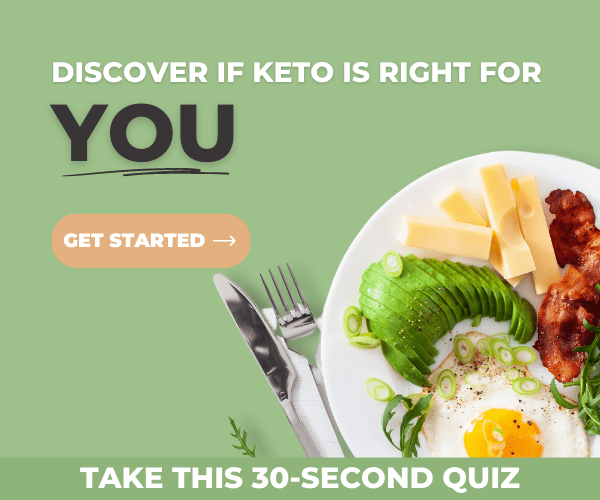Kellogg’s Lawsuit: Breakfast Giant Admits Sugar is Bad

For years, breakfast cereals have been marketed as a nutritious breakfast option. Kellogg’s marketed several of its cereals as healthy, including SmartStart and Raisin Bran. However, the recent Kellogg’s lawsuit is a class-action lawsuit aimed to disprove the “healthy” claims.
The settlement — which will be finalized on March 12, 2020 in San Jose, California – will require Kellogg’s to pay out of twenty-million dollars in coupons and vouchers to consumers who purchased the products under the false “healthy” pretenses.
Although it’s important for Kellogg’s to address false marketing, there is an even bigger statement being made: the breakfast giant is admitting that sugar is bad. And this could change the way consumers view breakfast – and more importantly – view their own diets.
What is the Kellogg’s Lawsuit?
The Kellogg’s lawsuit is a class action lawsuit – a type of lawsuit in which the plaintiff is an individual (or two or three) that represents a much larger group. In this case, the plaintiffs are Melody DiGregorio, Eric Fishon, Kerry Austin, and Nafeesha Madyun, and they are represented by Jack Fitzgerald of The Law Office of Jack Fitzgerald PC.
These individuals are filing the lawsuit on behalf of a much larger group – individuals who bought Kellogg’s products because they were “healthy”. The basis for their lawsuit is that Kellogg’s branded their cereal as healthy, but the excessive sugar in the “healthy” cereal is toxic to the human body.
DiGregoria, Fishon, Austin, and Madyun have filed the lawsuit against Kellogg Sales Company – more often known as Kellogg’s. And the results of the DiGregorio, et al. v. Kellogg Sales Company lawsuit? Kellogg’s must pay over twenty-million in coupons and vouchers. [1] The verdict reaffirms what we already know: excessive sugar is bad.

Is Sugar That Bad for You?
Sugar adds an addictive sweetness to a lot of foods – not just medicine. Technically, sugar is a type of carbohydrate that the human body uses for fuel. There are many types of sugar including fructose, glucose, lactose, and sucrose.
Sugar can naturally be found in foods such as fruit (fructose) and milk (lactose). When the body consumes carbohydrates, such as a piece of white bread, it is converted into glucose and then used for energy. Excess sugar is stored in fat as glycogen.
Too much sugar, however, doesn’t do a body good. When excessive sugar floods the bloodstream, more insulin is produced, which can lead to insulin resistance and high blood sugar levels. Untreated, high blood sugar can increase your risk for a variety of conditions from diabetes to cardiovascular disease.
The plaintiffs referred to various studies that confirm that excessive added sugar increases the risk of diseases such as diabetes, heart disease, and liver disease. “Added sugar” refers to any amount of sugar that exceeds 5 percent of the daily caloric intake. Added sugar can be found in nearly every food from breakfast to dinners to dessert.
Soda and other beverages account for 42.2 percent of the average individual’s added sugar consumption. [2] Other common sources of hidden sugar include salad dressings and toppings, grain-based desserts, fruity beverages, candy, breakfast cereal, and yeast breads.
Sugar consumption is particularly dangerous because it can increase the risk of death (from heart disease) even if you’re not overweight! [3]
Sugar and Keto: What’s the Link?
Consuming excessive amounts of added sugar isn’t ideal, but what about sugar that naturally occurs in foods like bananas and pineapple? Can sugar be consumed on keto? Technically, yes. However, the amount of sugar varies from person to person.
Two people on keto may have different macro needs – you can learn yours here – but generally, it is less than 50 grams of total carbohydrates per day. That means all sources of carbohydrates, including refined sugar, should be limited to as little as possible to avoid the impact carbohydrates can have on blood sugar and insulin levels.
So, while sugar is a carb and does count toward your 50 grams or less a day (or whatever your specific macro goals are), you should still limit sugar intake so as not to spike your blood sugar.
Have a sweet tooth? No worries. You don’t need to say goodbye to sweets forever. There are plenty of keto-friendly sweeteners. For example, stevia, xylitol, and erythritol are often incorporated in keto desserts. These Keto Oreos use erythritol, and one cookie has 4.8 grams of carbs and 2.5 grams of fiber. A conventional Oreo provides almost no fiber (0.4 grams) and has 12.1 grams of carbohydrates. [4]
As you become fat-adapted, you’ll probably notice that your cravings for sweets decreases. This is because sugar is addictive, and as you cut back, your body (and cravings) will adjust too. [5] Win win!
Going Forward: Finding Great Breakfast Dishes … Without Added Sugar
The Kellogg’s lawsuit is a good reminder to periodically review your menu. The good news is that you don’t need cereal to have a well-balanced breakfast. In fact, you’ve got dozens of options for a satisfying, delicious, and no sugar added breakfast. The only hard part is deciding which recipe to try first.
References
DiGregorio, Et Al. v. Kellogg Sales Company. UNITED STATES DISTRICT COURT FOR THE NORTHERN DISTRICT OF NEW YORK , 28 May 2019.
Ogden, Cynthia L. “Consumption of Sugar Drinks in the United States.” National Health and Nutrition Examination Survey, Aug. 2011.
Yang, Quanhe. “Sugar Intake and Cardiovascular Diseases Mortality.” JAMA Internal Medicine, American Medical Association, 1 Apr. 2014.
“Oreo Nutrition Label.” Nutrition Label.
Avena, Nicole M, et al. “Evidence for Sugar Addiction: Behavioral and Neurochemical Effects of Intermittent, Excessive Sugar Intake.” Neuroscience and Biobehavioral Reviews, U.S. National Library of Medicine, 2008.









